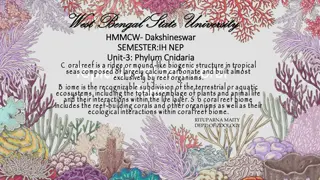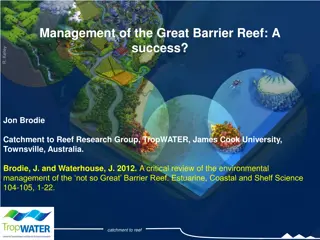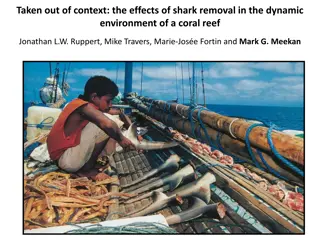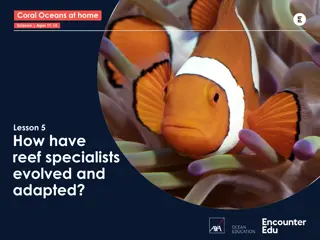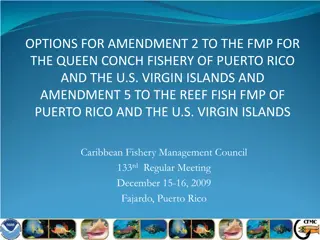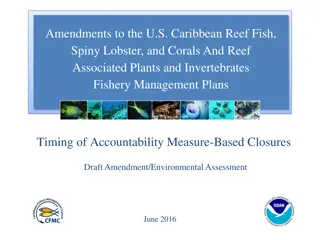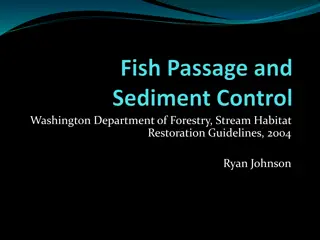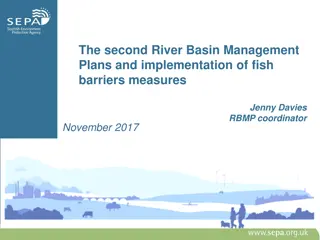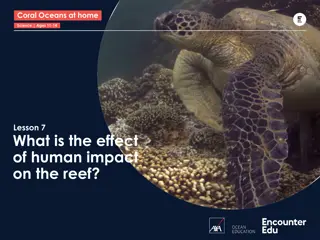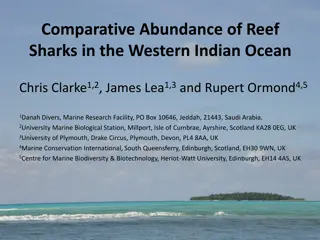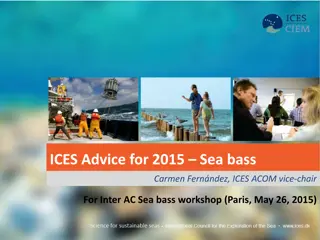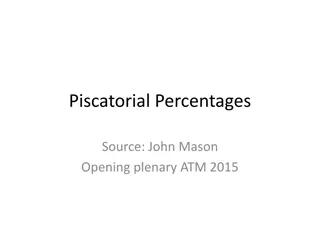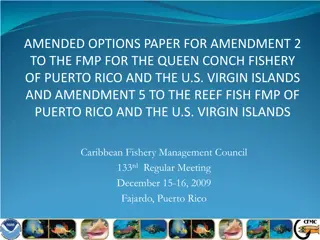Importance of Managing Reef Fish Spawning Aggregations
Reef fisheries play a significant role in global fishery landings, supporting millions of people. However, the exploitation of valuable species that aggregate to spawn can lead to overfishing due to inadequate management, conservation, and monitoring. The decline of aggregating fishes in regions like Fiji highlights the urgent need to address the threats facing these spawning aggregations. Solutions must be explored to ensure the sustainability of these important marine resources.
Download Presentation

Please find below an Image/Link to download the presentation.
The content on the website is provided AS IS for your information and personal use only. It may not be sold, licensed, or shared on other websites without obtaining consent from the author. Download presentation by click this link. If you encounter any issues during the download, it is possible that the publisher has removed the file from their server.
E N D
Presentation Transcript
With the support of: Management of Reef Fish Spawning Aggregations By Yvonne Sadovy (University of Hong Kong) Presented by Eric Clua (SPC/CRISP)
Reef fisheries >10% of global fishery landings Support and nourish millions Pressures to exploit them growing Many valuable species aggregate to spawn and are easily overfished Little management, conservation or monitoring
Aggregating fishes make up circa 70% of Fiji coastal catches; most of the 22 reported aggregations undergoing decline
What are spawning aggregations and why are they so important?
Pat Colin Pat Colin
Spawning aggregations Global and local trends Threatened fisheries and species Challenges to management Possible solutions
www.scrfa.org Sadovy et al., 2008 Conservation Biology
Groupers, Palau aggregation catches (PCS/SCRFA, 2003) 1500 Catch in kg per trip 1000 500 0 1955 1965 1975 1985 1995 2005 Decade
162 groupers globally 25% threatened or near-threatened (IUCN Red List) partly due to aggregation fishing Sadovy et al., in prep
Live Reef Food-Fish Trade
Many of the major species in live reef food fish trade aggregate to spawn
Spread of live reef food fish trade source countries For fish 1970s to 1990/2000s
A major impediment to management is the lack of awareness of exploited aggregations and their status and the impacts of exploitation on aggregations and on the fisheries they support
Illusions of plenty from the many fish caught in aggregations make it difficult to convince people to manage proactively Yvonne Sadovy
Vulnerable seabird colonies and turtle nesting beaches often receive protection ..
and many regulations protect berried (with eggs) lobsters
Non-extractive benefits Ripe adults are the capital and spawning aggregations produce interest (eggs)
Non-extractive benefits $ $ $ $ $ $ $$ $ $ $ $ Ripe adults are the capital and spawning aggregations produce interest (eggs $$$) $ $
Spawning aggregations Global and local trends Threatened fisheries and species Challenges to management Possible solutions
Example of aggregation information available on SCRFA database: www.scrfa.org
Example of aggregation information available on SCRFA database: www.scrfa.org
Spatial protection Outer reef areas often not included in MPAs or otherwise managed
Preserving spawning aggregations and the fisheries they support Recognize general need for management Map exploited aggregations/seasonality Consider spatial/seasonal protection etc. Spawning aggregations as indicators? Instruments, accords, guidelines, resolutions : IUCN; ICRI; Micronesian Challenge; FAO; EBM
Aggregations as indicators? Candidates as indicators of general reef fishery condition can signal: (a) pressures on fishery resources caused by human activities (fishing); (b) environmental state (aggregation condition relevant to some baseline); (c) societal response by the degree to which they are managed effectively. SCRFA Newsletter No. 12: www.scrfa.org
Myths about the sea The sea has endless fish: we will never run out There are not enough data for management Aquaculture will solve overfishing and all our seafood needs Fish still here but they moved somewhere else Fish declines not due to fishing instead pollution, boats, global climate change . MPAs alone can manage reef fisheries



